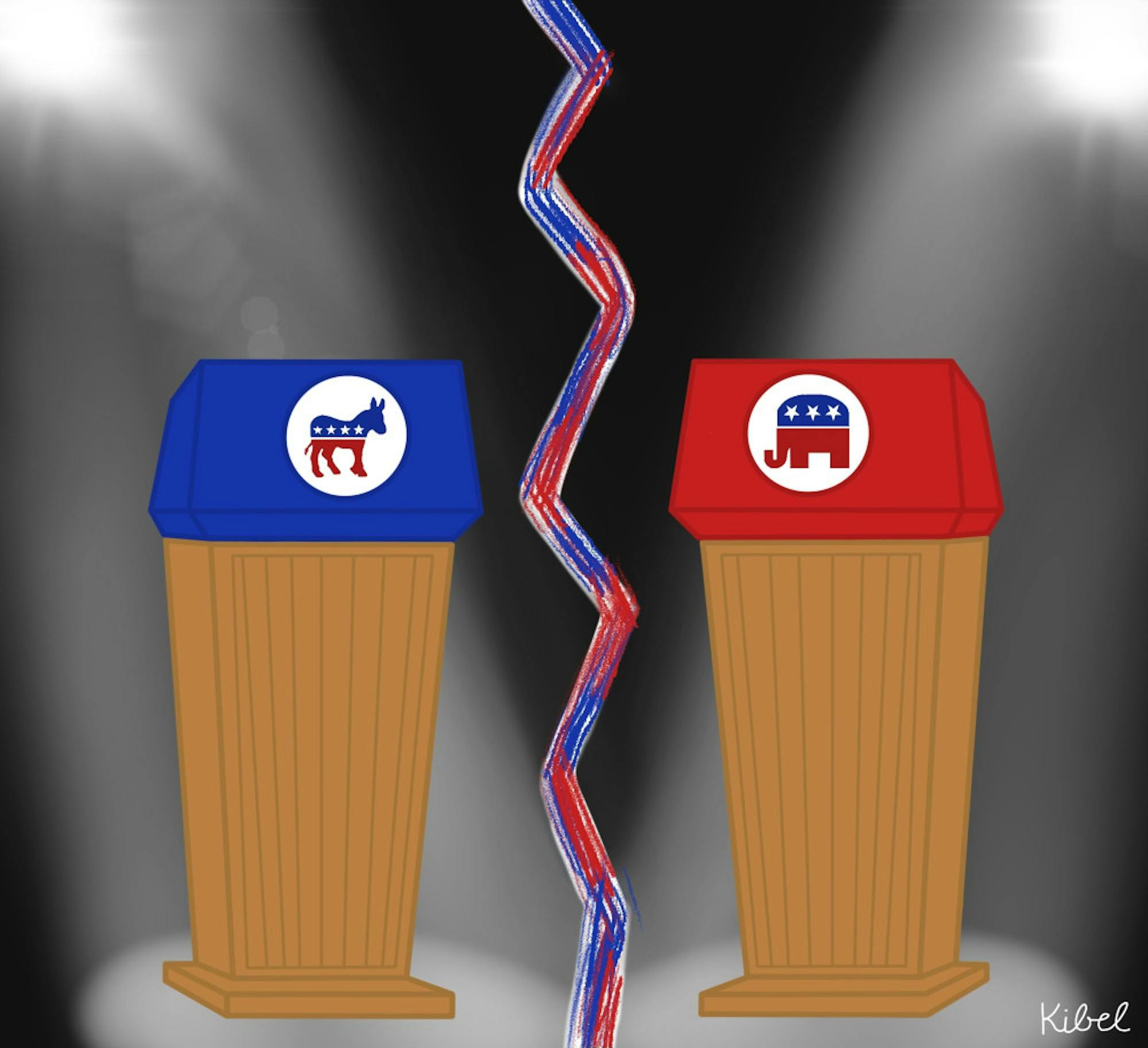In an era of political polarization, the increasingly-rare swing voter becomes all the more important. Campaigns rush to promote their ideas as well as discredit the opposition’s. Of course, these goals have always been present, which is why the campaign debate has become one of the most honored traditions of each election cycle. However, debate numbers have been dwindling recently and some worry that this is the start of a scary new trajectory.
Since the first nationally televised debate between John F. Kennedy and incumbent Richard Nixon — in which Kennedy’s charisma and polished appearance sparked an upset victory — it has been considered a strategic blunder to avoid debates. It is important to engage with both citizens and press as well as face an opponent directly, adding a human element to the debates. In contrast, today, debates don’t seem to be strategic or valued at all. There are a number of factors that address this trend.
First, debates simply do not serve the same purpose that they once did. When Kennedy and Nixon debated, it broke records in television viewership and reached tens of millions of households. The new era of civic engagement that TV promised has since been usurped by social media and the internet. Fewer Americans watch TV news, and more than 80% report getting their news digitally through platforms like social media, news websites and podcasts. Moreover, younger generations are at the forefront of these trends, signaling a shift in voter outreach toward the electorate of the future.
This digital age works for candidates too: The University of Texas at Austin’s Moody School of Communication writes that media algorithms can create a biased experience, absent of opposing views. When users interact positively with certain viewpoints, they will be shown more information that supports those ideas. This means that candidates can easily rally and solidify their base online. Indeed, some prominent conservatives have even created or flocked to their own social media platforms with the presumed purpose of avoiding liberal users.
As methods of communication have changed, debates have attempted to adapt with them. To appease a shortened attention span and disinterest in nuance, debates have evolved into a television spectacle. The diminishing number of voters who do watch debates are treated to something far from civil discourse. Candidates shout, mock, interrupt each other and show little regard for rules and moderators. Candidates aim to embarrass rather than overcome, and they live in fear of being the next in-line for jokes via internet memes or late-night television. We have created our own structural barriers to discourse, making the act of “winning” a debate seemingly impossible to candidates in a sea of media takeaways and viral clips. Of all the gubernatorial and senate races, only five have seen multiple debates, while in other competitive races such as Arizona and Pennsylvania’s governorships, there haven’t been any at all. Now, for the majority of candidates, it seems the only winning move is not to play.
Avoiding these structural barriers would certainly benefit candidates like John Fetterman, who was put on the spot in a debate about a recent stroke as the word of his doctors on his ability to serve was not enough for many voters. This rhetoric reeked of ableism, and it shows that despite accepting numerous physically impaired politicians such as Texas Gov. Greg Abbott, voters are less accommodating of other health issues.
Even so, these trends hardly reflect a more accommodating America. Attacks on the debate system easily become attacks on opponents themselves. Arizona Senate Candidate Katie Hobbs wouldn’t debate her opponent Kari Lake even after a deadline extension, stating she didn’t want Lake to create another “spectacle” like she did in the primaries. Attempts by Pennsylvania Republican Doug Mastriano to skew the debate system by eliminating traditional media and using candidate-chosen moderators were met with understandable backlash by opponent Josh Shapiro. Mastriano attacked Shapiro as “reluctant” and Shapiro spokesman Will Simons called it an “obvious stunt” to help his “extreme agenda.” Favored candidates are able to avoid a blunder, while underdogs drag their opponents into dangerous rhetorical cycles.
These cycles only feed into political polarization that makes compromise among politicians even harder. Candidates refuse to hear each other out, and the result is a disdain or disrespect to the democratic ideal of dialogue. As a result, it is unlikely that debates will reach their former level of prominence. This backslide is damaging, but we must not let it become the new norm. As voters, it is important to not just register to vote and consider candidate beliefs in voting but to actually participate in this discourse. This can be as simple as watching a debate on TV or attending a town hall and emailing your representatives to participate. Not only will you be a more educated voter, but you will demonstrate to politicians that voters still value democratic discourse.






